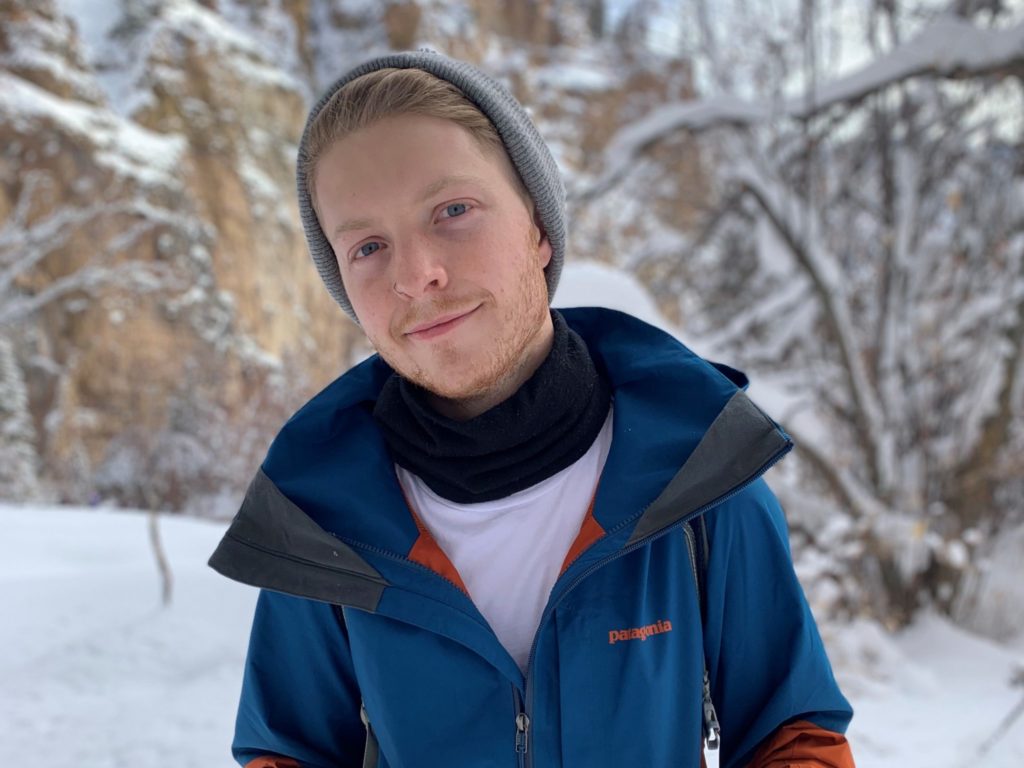Department of Chemistry Ph.D. candidate, Ian Moseley, has been named a 2020 National Science Foundation (NSF) Graduate Research Fellow. The NSF Graduate Research Fellowship Program (GRFP) is the oldest graduate fellowship of its kind.
As a fellow, Moseley will receive a three-year annual stipend to cover everyday expenses as well as a cost of education allowance for tuition and fees, paid to the institution. He will also receive opportunities for international research and professional development.
Research on molecular magnets

Moseley’s research spans both inorganic chemistry and materials science. His most recent research efforts have been investigating molecular magnets, trying to better understand how the environment they are placed in impacts their magnetic properties.
“In order to store information on your iPhone, we need to be able to make things very small,” Moseley said. “Molecules are incredibly small, and by using chemistry, we can make unique molecules that act like magnets. I work on trying to understand how to make these magnets better, so that researchers can develop new technologies faster.”
NSF Graduate Research Fellows are expected to contribute significantly to research, teaching, and innovations in their given field, becoming experts at what they do. The program alleviates financial burdens, so fellows can concentrate on research.
“I am most excited about the independence from group grants and university funding,” Moseley said. “I am excited to be able to focus exclusively on the research that excites me.”
With the fellowship, Moseley is eligible to apply for the NSF Graduate Research Opportunities Worldwide, which is an international internship and exchange program, through which Moseley can get funding to conduct research abroad with independent research institutions or national laboratories.
Colorado State University students honored by NSF GRFP
Since 1952, the NSF GRFP has drawn in applicants from across the nation, recognizing and supporting outstanding graduate students who are pursuing research-based graduate degrees. This year saw 1,000 more applicants than 2019 with approximately 13,000 candidates.
In total, 2,076 individuals were named 2020 NSF Graduate Research Fellows, including Moseley, and 1,787 individuals received honorable mentions, eight of which are from CSU, including chemistry students Anthony Campanella and Guilian Luchini.
NSF-GRFP Recipients from CSU:
- Amanda Shick, Engineering – Mechanical Engineering
- Ian Moseley, Chemistry – Chemical Synthesis
- Grace Johnston, Life Sciences – other (specify) – Plant Biology
- Kirsten Hein, Life Sciences – Genetics
- Arielle Hay, Life Sciences – Microbial Biology
- Lily Durkee, Life Sciences – Ecology
- Bradly Burke, Life Sciences – Microbial Biology
NSF-GRFP Honorable Mentions from CSU:
- Juliet Seibel, Life Sciences – Ecology
- Guilian Luchini, Chemistry – Chemical Theory, Models and Computational Methods
- Emily Iskin, Geosciences – Geomorphology
- Olivia Hajek, Life Sciences – Ecology
- Brandi Grauberger, Engineering – Mechanical Engineering
- Rachel Fleming, Life Sciences – Evolutionary Biology
- Anthony Campanella, Chemistry – Chemical Synthesis
- Kaela Amundson, Life Sciences – Microbial Biology
NSF Graduate Research Fellowship Program
Applicants can be undergraduate seniors as well as first or second-year graduate students in science, technology, engineering and mathematics (STEM) fields. To date, NSF has funded over 50,000 Graduate Research Fellowships out of more than 500,000 applicants. 42 Fellows have gone on to become Nobel laureates, and more than 450 have become members of the National Academy of Sciences.
“I would encourage undergraduates interested in graduate school to seek out and apply for these types of fellowships while they are still in undergrad,” Moseley said. “The NSF GRFP is open to most undergraduates interested in pursuing graduate research, and you are able to apply for free. Securing this type of fellowship can greatly increase your chances of getting into the research group of your choice.”
To learn more about the program and the application process, visit https://www.nsfgrfp.org/.